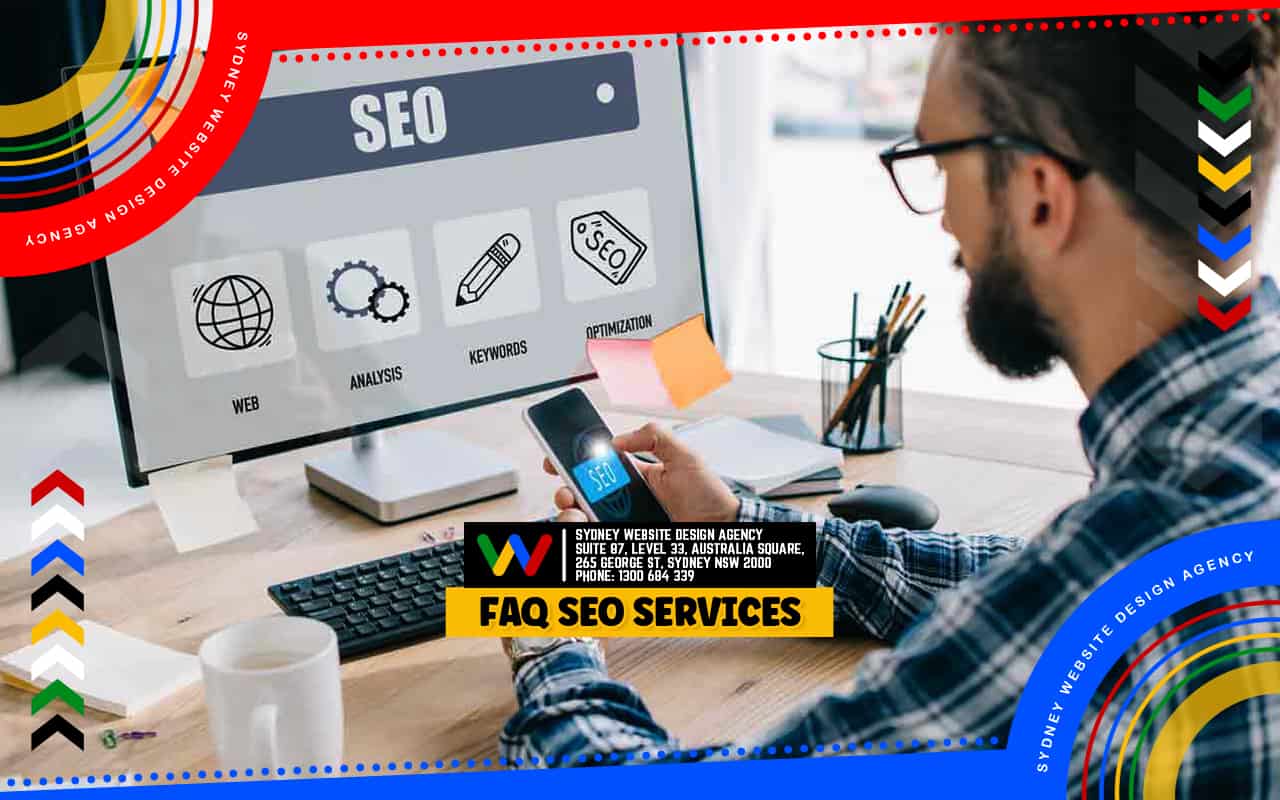SEO Services Sydney for Businesses Looking to Grow Organically
Having a strong, online marketing presence is essential for businesses to succeed. With the fierce competition in Sydney’s market. It’s crucial to ensure that your business is easily discoverable by your target audience. This is where SEO services Sydney are helpful.
In this blog post, we’ll explore why SEO services are crucial for businesses in Sydney that are ready to grow organically. We’ll discuss the benefits of SEO services. Those that can help your business stand out in the crowded, digital marketing agency space.
Introduction
Finding SEO services in Sydney to grow your business can be a daunting task, especially with the wide range of options available. With so many providers offering various packages and features, it’s important to take your time when researching and deciding on the best option for you.
When looking for an SEO Services provider, there are several key factors that need to be taken into consideration before deciding. This includes understanding their experience in the industry, their results-driven approach, as well as any other specific requirements you may have. By doing this research upfront will ensure that you get the most value out of your investment and achieve the desired results from your SEO campaign.
Overall, when searching for an affordable SEO provider in Sydney, it’s significant to consider the quality of service being offered rather than just the price tag. By carefully researching potential providers and taking the time to ask questions about their services, you will be able to ensure that you get a significant value package that meets all your needs and helps you reach your business goals.
Table of Contents
- Understanding SEO Services And Action Plan
- Analysing Different Providers and SEO Packages
- Considering Your Specific Requirements
- Researching Potential Providers Thoroughly
- Comparing Prices and Quality of Service
- Getting the Most Value Out of Your SEO Investment
- SEO Sydney Frequently Asked Questions
- How Important is Content Creation in SEO?
- Top 50 SEO Questions Answered by SEO Specialists
Understanding SEO Services And Action Plan

SEO Sydney is a process of optimising your website or online content. It is to rank higher in search engine results pages (SERPs) organically. The higher your website or content ranks in SERPs, the more visibility and organic traffic that it will receive. SEO services help businesses. It is to improve their online presence, visibility, and reach potential customers.
Understanding SEO Services
SEO Sydney services involve a range of techniques and strategies to optimise a website or online content for search engines. They are led by SEO Sydney experts that are capable of optimising your website, gearing it towards success. Some essential SEO services include:
On-page Optimisation
On-page optimisation involves optimising website content. Furthermore, title tags, meta descriptions, header tags, images, and URLs. It is to improve search engine visibility in Google search and ranking. This is just one of the digital marketing efforts that an SEO Agency can do for your business.
Off-Page Optimisation
Off-page optimisation involves optimising external factors. Those that impact website ranking. Those such as link building, social media marketing, and online reputation management. Such efforts in digital marketing aid in helping your website rank high in search engines.
Keyword Research
Keyword research involves identifying and selecting relevant keywords and phrases. Those that potential customers use to search for products or services in a specific industry or niche.
Content Creation
Content creation involves creating high-quality, engaging, and informative content. Those that address the needs of potential customers. Furthermore, those that help to establish the business as an authority in its industry or niche.
Analytics and Reporting
Analytics and reporting involve tracking website traffic, search engine ranking, and other metrics. It is to measure the effectiveness of SEO strategies and adjust them accordingly.
Action Plan
An effective SEO action plan involves the following steps:
Define your SEO Goals
The first step in developing an SEO action plan is to define your business goals. These include increasing website traffic, generating leads, or improving conversion rates.
Conduct a Website Audit
Conducting a website audit involves analysing the current website structure, content, and performance. It is to identify areas that need improvement.
Keyword Research
Conducting keyword research involves identifying relevant keywords and phrases. Those that potential customers use to search for products or services in your industry or niche.
Develop a Content Strategy
Developing a serious content marketing strategy involves creating a plan. A plan for creating high-quality, engaging, and informative content. One that addresses the needs of potential customers. Furthermore, one that helps to establish your business as an authority in your industry or niche.
Analytics and Reporting
Analytics and reporting involve tracking website traffic, search engine ranking, and other metrics. It is to measure the effectiveness of SEO strategies and adjust them accordingly.
SEO services are essential for businesses that want to grow organically and reach potential customers. By following these steps, businesses can improve their online presence, visibility, and reach potential customers.
Analysing Different Providers and SEO Packages

Investing in Sydney SEO services can be a smart move for businesses ready to grow organically. However, with so many SEO providers and packages available, it can be challenging to determine which one is the best fit for your business.
To make an informed decision, it’s essential to analyse different providers and SEO packages. It is to understand the services they offer, their pricing, and the results they promise. Here are some factors to consider when evaluating SEO providers and packages:
Services Offered
Before signing up with an SEO provider, it’s essential to understand the services they offer. A comprehensive SEO package should include keyword research, on-page optimisation, link building, content creation, and performance tracking. Make sure the package you choose aligns with your business goals and the services you require.
Experience and Reputation
Look for an SEO provider, SEO agency with extensive experience and a strong reputation in the industry. Research the company or marketing SEO service best SEO agency here’s portfolio and reviews from past clients to gauge their expertise and the results they deliver.
Pricing
SEO pricing can vary significantly depending on the services offered, the level of expertise, and the size of the company. Look for a package that offers a fair price for the services you need without compromising quality.
Results
The ultimate goal of SEO is to improve your website’s search engine ranking, organic traffic and visibility. Look for an SEO provider that promises measurable results and has a track record of delivering them.
Communication and Support
Communication and support are crucial when it comes to Sydney SEO services. Look for a provider that has a clear communication strategy and is responsive to your queries. Moreover, look for one that provides regular updates on the progress of your SEO campaign.
In conclusion, investing in Sydney SEO services can be an excellent way for businesses to grow organically. However, it’s crucial to analyse different providers and SEO packages to find the right fit for your business. By considering the factors mentioned above, you can make an informed decision. You can choose an SEO provider that can help you achieve your own business growth goals.
Considering Your Specific Requirements

When considering SEO services in Sydney for your business, it’s crucial to consider your specific requirements. It is to ensure that the services you select align with your goals and objectives. Here are some key factors to consider when evaluating your specific SEO requirements:
Business Goals
The first step in determining your SEO requirements is to define your business goals. Are you looking to increase traffic to your website, generate more leads, improve brand visibility, or increase sales? By identifying your goals, you can determine the specific SEO services that will help you achieve them.
Target Audience
It’s also essential to consider your target audience and their search behaviour. What are the keywords and phrases they use to search for your products or services? You can tailor your SEO strategy to target organic search engines’ traffic with the right keywords and improve your website’s visibility to your ideal customers. It is by understanding your target audience’s search behaviour.
Competition
It’s also essential to consider your competition in the market. What are their SEO strategies, and how can you differentiate your business? By analysing your competition, you can identify the gaps in the market. You can develop an SEO strategy and target market, that helps you stand out and attract potential customers.
Budget
SEO marketing services can vary significantly in terms of cost and scope. Therefore, it’s crucial to consider your budget. You should determine the services that fit within your budget while still achieving your goals.
Timeframe
Finally, it’s essential to consider your timeframe. SEO is a long-term strategy, and it takes time to see significant results. Therefore, it’s crucial to set realistic expectations. You should develop an SEO strategy that aligns with your timeline and budget.
Researching Potential Providers Thoroughly

Researching potential SEO providers thoroughly is critical. It is ensuring that you choose the right provider for your business’s specific needs. Here are some tips to help you research potential providers thoroughly:
Check Their Website
The first step is to check the SEO provider’s website. Look for testimonials from past clients, case studies, and a portfolio of their work. A professional and informative website can be a good indication of the quality of the services they offer.
Read Reviews
Check third-party review sites to see what past clients have to say about the SEO provider. Search for patterns in the reviews to get a deeper understanding of the provider’s strengths and weaknesses.
Check Their Experience and Expertise
Look for an SEO provider with extensive experience and a strong reputation in the industry. Research the company’s background and years of experience. Furthermore, research their expertise to gauge their level of knowledge and the results they deliver.
Evaluate Their SEO Process
A reputable SEO provider should have a transparent and comprehensive SEO process that they follow to achieve results. Evaluate the provider’s process to see if it aligns with your business goals and requirements.
Ask for References
Request references from past clients, and reach out to them to ask about their experience working with the provider. This can give you valuable insights. Those into the provider’s communication, responsiveness, and the results they achieved.
Consider Their Communication and Support
Communication and support are crucial when it comes to SEO services. Look for a provider that has a clear communication strategy and is responsive to your queries. Furthermore, one that provides regular updates on the progress of your SEO campaign.
Researching potential SEO providers thoroughly is essential. It is to choose the right provider for your business’s specific needs. By researching thoroughly, you can make an informed decision and choose an SEO provider that can help you achieve your business goals.
Comparing Prices and Quality of Service

When it comes to deciding an SEO provider, comparing prices and quality of service is essential to ensure that you get the best value for your money. Here are some tips to help you compare prices and quality of service:
Understand the Different Pricing Models
SEO providers typically offer different pricing models. Common examples are hourly rates, monthly retainers, or project-based pricing. It’s important to understand the different pricing models and what they include to make an informed decision.
Compare the Services Offered
Different SEO providers offer different services. It’s essential to compare the services offered by different providers. Look for providers that offer a comprehensive range of Sydney SEO services that align with your business goals and requirements.
Evaluate the Quality of Service
Quality of service is crucial when it comes to SEO. Look for providers with a strong reputation in the industry, and check their track record of delivering results for clients.
Consider the Level of Experience and Expertise
The level of experience and expertise of the SEO provider can also impact the quality of service. Look for providers with extensive experience and a strong understanding of SEO best practices.
Compare Pricing
Once you’ve evaluated the quality of service, it’s essential to compare pricing to ensure that you get the best value for your money. However, it’s important to remember that the cheapest provider may not always offer the best quality of service.
Check for Any Hidden Costs
Finally, it’s important to check for any hidden costs that may not be included in the pricing quote. Make sure you understand what’s included in the pricing quote and ask for clarification if needed.
In conclusion, comparing prices and quality of service is crucial when choosing an SEO provider. By doing this, you can make an informed decision and choose an SEO provider that can help you achieve your business goals.
Asking Questions Related to Your Goals & Needs

When choosing an SEO provider, it’s important to ask questions related to your business goals and needs. It is to ensure that the provider can meet your specific requirements. Here are some tips to help you ask the right questions:
Define Your Business Goals
Before you start asking questions, it’s important to define your business goals. Consider what you want to achieve with SEO. Common examples are increased website traffic, higher search engine rankings, or more conversions.
Ask About Their SEO Process
Ask the SEO provider about their SEO process, including the strategies and tactics they use to achieve results. Make sure their process aligns with your business goals and requirements.
Inquire About Their Experience
Ask the provider about their experience working with businesses similar to yours. This can give you an idea of their level of expertise and understanding of your industry.
Ask About Their Reporting and Communication
It’s essential to choose an SEO provider that provides regular reporting and communicates clearly. Ask about their reporting schedule and what information is included in the reports.
Discuss Your Budget
Be upfront about your budget and ask the provider how they can work within your budget to achieve your business goals.
Inquire About Their Timeline for Results
Ask the provider about their timeline for achieving results. This can help you manage your expectations and plan for the future.
Ask for Examples of Their Past Work
Request examples of the provider’s past work, including case studies or portfolio examples. This can give you a better idea of their capabilities and the results they’ve achieved for other clients.
Asking questions related to your business goals and needs is crucial when choosing an SEO provider. By asking questions, you can make an informed decision and select an SEO provider that can help you achieve your business goals.
Getting the Most Value Out of Your SEO Investment

Investing in SEO can be a significant expense for businesses, so it’s essential to ensure you’re getting the most value out of your investment. Here are some tips to help you get the most value out of your SEO investment:
Define Your Business Goals
Before you invest in SEO, it’s important to define your business goals. Consider what you want to achieve with SEO. Common examples are increased website traffic, higher search engine rankings, or more conversions.
Choose the Right SEO Provider
Choosing the right SEO provider is crucial to getting the most value out of your investment. Look for providers with a strong reputation in the industry and a proven track record of delivering results. Also, one that has a comprehensive range of SEO company services that align with your business goals.
Focus on Long-Term Results
SEO is a long-term strategy, and it’s important to focus on long-term results rather than short-term gains. This means investing in sustainable strategies that can provide ongoing benefits over time.
Regularly Review and Adjust Your SEO Strategy
SEO is not a one-time task, and it requires ongoing monitoring and adjustments to remain effective. Regularly review your SEO strategy and make adjustments as needed to ensure you’re getting the most value out of your investment.
Measure and Track Your Results
Measuring and tracking your results is crucial to understanding the impact of your SEO investment. Use tools like Google Analytics to track website traffic, organic search, engine rankings, and conversions. Regularly review these metrics to identify areas for improvement.
Integrate SEO with Other Marketing Channels
SEO is just one part of your overall digital marketing and strategy. Integrating SEO with other marketing channels can help you get the most value out of your investment. Consider how SEO can work alongside other channels. Those such as social media, email marketing, and content marketing, to drive results.
Be Patient
SEO is a long-term strategy, and it can take time to see results. Be patient and continue to invest in SEO over time to achieve sustainable results.
In conclusion, getting the most value out of your SEO investment requires a strategic approach. By following this advice, you can maximise the impact of your SEO investment and achieve your business goals.
How Important is Content Creation in SEO?
Content creation is a crucial component of SEO, as it provides valuable information for search engine users and helps establish your website as an authority in your industry. Effective content creation can include blog posts, infographics, videos, and other forms of content that provide value to your target audience.
Sydney SEO can be a powerful tool for businesses. Those who are looking to grow organically and improve their own online marketing and digital marketing services and presence.
You can make an informed decision and choose an SEO provider that can help you achieve your business goals. With the right SEO strategies in place, businesses can improve their search engine rankings. This can drive more traffic to their website, and ultimately increase their revenue and profitability. So, if you’re ready to take your business to the next level, consider investing in Sydney website design agency SEO services today.
SEO Sydney Frequently Asked Questions

What is SEO?
It encompasses a range of SEO services provided by SEO agencies, such as SEO Sydney services, which utilise strategies like on site SEO, off site SEO, and competitor analysis to improve SEO rankings and increase visibility on Google search and other search engines.
These agencies also offer custom SEO reporting to track progress and adjust strategies accordingly. With dedicated SEO experts and a comprehensive digital strategy, businesses can achieve high quality leads and increase brand awareness, ultimately leading to business growth and SEO success.
How Long Does it Take to See Results from SEO?
How Much Does SEO Cost?
What are the differences between on page SEO and off page SEO?
Off-page SEO, on the other hand, focuses on factors external to the website, like backlinks and social media signals, to enhance its authority and relevance.
While on-page SEO targets content optimisation and URL structure, off-page SEO emphasises link building strategy using seo tools, and social media marketing to boost google rankings.
How can partnering with a Sydney SEO agency benefit business owners?
By implementing best SEO practices and competitive keywords, they can improve organic search results and increase brand awareness. With tailored SEO campaigns and a link building strategy, a Sydney SEO agency can help businesses rank higher in search engine results pages (SERPs), ultimately leading to improved SEO results and increased revenue.
Why are professional SEO services vital for eCommerce sites?
Other SEO agencies, like the best SEO agency Sydney, offer comprehensive services, from free SEO audit to SEO campaigns tailored for eCommerce. By partnering with SEO experts, businesses can navigate SEO methods and digital marketing channels effectively, ensuring their eCommerce site ranks well for target keywords.
With SEO professionals focused on eCommerce SEO, any business owner can amplify their marketing strategy, attract more customers, and boost sales.
How do SEO experts develop customised SEO strategies?
Utilising SEO tools and leveraging their expertise in search engine optimisation, they optimise various aspects of the website, including web design and WordPress SEO, to improve Google rankings and online visibility.
Focusing on local SEO and ecommerce SEO, they ensure that the business gains SEO success and achieves SEO results. With the support of a reputable digital marketing agency like a Sydney SEO company, businesses benefit from other digital marketing services that enhance their business online presence.
How do top Sydney SEO agencies create and manage link building?
Leveraging their expertise as SEO specialists, they outreach to these sites, offering valuable content and resources. By implementing SEO best practices and adhering to Google guidelines, they ensure high-quality links that enhance search engine optimisation services.
These agencies also monitor and analyse link performance, adjusting strategies as needed to drive Sydney business growth and maintain their reputation as Sdyeny SEO services providers.
Why is SEO crucial for business growth?
Leveraging strategies like Google Ads and target keywords, businesses can achieve higher rankings on search engines like Google, especially when executed by a top-tier SEO agency Sydney. SEO increase brand awareness but also drives traffic, resulting in improved digital strategy and overall success.
With SEO guarantees by the right SEO partner, businesses can navigate through other digital marketing channels, ensuring optimal results and maximising their SEO work efforts.
What is Link Building?
Loclaow Important is Content Creation in SEO?

Content creation is a crucial component of SEO, as it provides valuable information for search engine users and helps establish your website as an authority in your industry. Effective content creation can include blog posts, infographics, videos, and other forms of content that provide value to your target audience.
Sydney SEO can be a powerful tool for businesses. Those who are looking to grow organically and improve their own online marketing and digital marketing services and presence.
You can make an informed decision and choose an SEO provider that can help you achieve your business goals. With the right SEO strategies combined with seo specialists in one place, businesses can improve their search engine rankings. This can drive more traffic to their website, and ultimately increase their revenue and profitability. So, if you’re ready to take your business to the next level, consider investing in Sydney website design agency SEO services today.
Top 50 SEO Questions Answered by SEO Specialists
1. What is SEO, and why is it important for businesses?
SEO, or search engine optimization “search engine optimisation”, is a vital component of digital marketing strategy, particularly for businesses aiming to boost website traffic and enhance business growth.
As a full service digital agency with a focus on search engine marketing, we at Sydney Digital Marketing understand its significance. Utilising bespoke SEO strategies and white hat techniques, our SEO specialists ensure your website ranks high on major search engines, driving more organic search results.
With monthly SEO reports and on page optimisation, we optimise your site to reach your target audience effectively, resulting in increased visibility, credibility, and ultimately, conversions.
Trust our Sydney SEO team to elevate your digital presence and propel your business forward.
2. How does SEO work?
SEO works by optimising various aspects of a website, including on-page elements like content and meta tags, off-page factors like backlinks, and technical aspects like site speed and mobile-friendliness.
By improving these elements, a website can rank higher in search results and attract more organic traffic.
3. What are the main components of SEO?
The main components of SEO include on-page optimisation, off-page optimisation, and technical SEO. On-page optimisation involves optimising content, meta tags, and other elements on individual web pages. Off-page optimisation focuses on building backlinks and improving the website’s authority. Technical SEO deals with factors like site speed, mobile-friendliness, and crawlability.
4. How does SEO differ from SEM?
SEO (search engine optimisation) is focused on improving organic search rankings and attracting organic traffic, while SEM (search engine marketing) involves paid advertising strategies like Google Ads to increase visibility in search results.
5. What are the benefits of hiring an experienced SEO agency?
Hiring an experienced SEO agency can bring several benefits, including expertise in SEO best practices, access to advanced tools and technologies, customised strategies tailored to your business goals, and the ability to track and measure results effectively.
6. How can SEO help businesses achieve growth?
SEO can help businesses achieve growth by increasing their online visibility, attracting more organic traffic, generating leads and conversions, improving brand awareness and credibility, and ultimately driving revenue and profitability.
7. What is a local SEO campaign, and why is it important for local businesses?
A local SEO campaign is focused on optimising a website to rank higher in local search results, especially for location-based queries. It’s important for local businesses because it helps them attract nearby customers who are searching for products or services in their area.
8. What are some ethical SEO practices that businesses should follow?
Ethical SEO practices include following search engine guidelines, avoiding black hat techniques like keyword stuffing and link schemes, prioritising user experience and quality content, and focusing on long-term, sustainable results.
9. How can businesses measure the success of their SEO traffic?
Businesses can measure the success of their SEO traffic by tracking key metrics like organic traffic, keyword rankings, conversion rates, bounce rates, and ROI (return on investment). Tools like Google Analytics and Google Search Console can help monitor these metrics.
10. What are the key differences between on-page SEO and off-page SEO?
On-page SEO involves optimising elements on individual web pages, such as content, meta tags, and internal links, to improve search rankings. Off-page SEO focuses on building external links, social signals, and other factors that influence the website’s authority and reputation.
11. Why is content marketing important for SEO?
Content marketing is important for SEO because it helps businesses create valuable, relevant, and engaging content that attracts organic traffic, earns backlinks, and improves search rankings. High-quality content also enhances user experience and encourages social sharing.
12. How can businesses choose the right SEO agency for their needs?
Businesses can choose the right SEO agency by considering factors like experience, expertise, reputation, client testimonials, case studies, pricing, communication style, and alignment with their business goals and values.
13. What is the role of link building in an effective SEO strategy?
Link building plays a crucial role in an effective SEO strategy by improving the website’s authority, credibility, and visibility in search results. High-quality backlinks from reputable websites signal to search engines that the site is trustworthy and relevant.
14. How does mobile SEO differ from desktop SEO?
Mobile SEO focuses on optimising a website for mobile devices, ensuring fast loading times, responsive design, and intuitive navigation. With the increasing use of smartphones and tablets, mobile SEO has become essential for reaching and engaging mobile users.
15. What are some common pitfalls to avoid in SEO?
Some common pitfalls to avoid in SEO include keyword stuffing, duplicate content, thin or low-quality content, slow loading times, broken links, poor site architecture, and ignoring technical SEO issues.
16. What role does content marketing play in SEO?
Content marketing plays a crucial role in SEO by providing valuable, relevant, and engaging content that attracts organic traffic, earns backlinks, and improves search rankings. High-quality content also enhances user experience and encourages social sharing.
17. How can businesses leverage social media advertising for SEO?
Businesses can leverage social media advertising for SEO by promoting their content on social platforms, engaging with their audience, building brand awareness and authority, and earning social signals that influence search rankings.
18. What is the importance of a solid SEO strategy for business success?
A solid SEO strategy is essential for business success because it helps businesses increase their online visibility, attract more organic traffic, generate leads and conversions, and ultimately drive revenue and profitability.
19. How can businesses avoid lock-in contracts when hiring an SEO agency?
Businesses can avoid lock-in contracts by carefully reviewing the terms and conditions of the SEO agency agreement, negotiating flexible terms, setting clear expectations upfront, and prioritising transparency and accountability in the partnership.
20. What are the key elements of a successful SEO campaign?
The key elements of a successful SEO campaign include comprehensive keyword research, on-page optimisation, off-page optimisation, technical SEO, content creation, link building, and regular monitoring and optimisation based on performance metrics.
21. What is the role of monthly SEO reports in tracking campaign progress?
Monthly SEO reports provide valuable insights into campaign performance, including key metrics like organic traffic, keyword rankings, backlink profile, and conversion rates. These reports help businesses track progress, identify trends, and make informed decisions to optimise their SEO strategy.
22. How can businesses achieve first-page rankings in search engine results?
Achieving first-page rankings in search engine results requires a combination of factors, including comprehensive keyword research, on-page optimisation, high-quality content creation, strategic link building, and ongoing monitoring and optimisation based on search engine algorithms.
23. What are some effective SEO strategies for small businesses with limited budgets?
Some effective SEO strategies for small businesses with limited budgets include focusing on long-tail keywords, optimising local SEO, leveraging user-generated content and social media, building relationships with influencers, and investing in high-impact tactics that deliver maximum ROI.
24. What are the best practices for conducting keyword research in SEO?
Best practices for conducting keyword research in SEO include identifying relevant keywords and phrases related to your business, analysing search volume and competition, targeting long-tail keywords with low competition, and prioritising high-value keywords that align with your business goals.
25. How can businesses optimise their website for local SEO?
Businesses can optimise their website for local SEO by creating and optimising Google My Business listings, optimising on-page elements like title tags and meta descriptions with local SEO keywords, building citations and local backlinks, and encouraging customer reviews and testimonials.
26. What is the importance of user experience in SEO?
User experience is important in SEO because search engines like Google prioritise websites that provide a positive user experience, including fast loading times, intuitive navigation, mobile-friendliness, and high-quality content. A better user experience leads to higher engagement, lower bounce rates, and improved search rankings.
27. How can businesses stay updated on the latest SEO trends and best practices?
Businesses can stay updated on the latest SEO trends and best practices by following reputable SEO blogs and publications, attending industry conferences and webinars, networking with other professionals in the field, and investing in ongoing training and education for their team.
28. What are some common misconceptions about SEO?
Some common misconceptions about SEO include the belief that it’s a one-time effort, that keyword density is the most important factor, that link building is dead, and that SEO is only about ranking higher in search results rather than providing value to users and meeting their needs.
29. How can businesses optimise their website for voice search?
Businesses can optimise their website for voice search by targeting conversational keywords and phrases, optimising content for featured snippets, providing clear and concise answers to common questions, and improving site speed and mobile-friendliness for a better user experience.
30. What role does structured data markup play in SEO?
Structured data markup, also known as schema markup, helps search engines understand the content and context of a web page, leading to enhanced visibility and richer search results. It can improve click-through rates, increase traffic, and provide a better user experience.
31. What are some effective strategies for building high-quality backlinks?
Some effective strategies for building high-quality backlinks include creating valuable and shareable content that attracts natural links, reaching out to relevant influencers and bloggers for collaborations, guest posting on authoritative websites, and participating in industry forums and communities.
32. How can businesses recover from a Google algorithm update that negatively impacts their search rankings?
Businesses can recover from a Google algorithm update by conducting a thorough audit of their website, identifying any issues that may have caused the drop in rankings, making necessary improvements to comply with Google’s guidelines, and focusing on delivering high-quality content and a positive user experience.
33. What are some key metrics to track in an SEO campaign?
Some key metrics to track in an SEO campaign include organic traffic, keyword rankings, backlink profile, bounce rate, time on page, conversion rate, ROI (return on investment), and overall website visibility in search engine results pages (SERPs).
34. How can businesses optimise their website for featured snippets?
Businesses can optimise their website for featured snippets by targeting question-based keywords, providing clear and concise answers in their content, structuring content in a format that’s easy for search engines to understand, and optimising meta tags and headings for relevance and clarity.
35. What are the benefits of hiring an SEO agency with experience in ecommerce SEO?
Hiring an SEO agency with experience in ecommerce SEO can bring several benefits, including expertise in optimising product pages, category pages, and navigation for better search visibility, improving site architecture and internal linking for enhanced user experience, and driving more traffic and sales through organic search.
36. How can businesses improve their website’s page speed for better SEO performance?
Businesses can improve their website’s page speed for better SEO performance by optimising images and multimedia content, minifying CSS and JavaScript files, leveraging browser caching and content delivery networks (CDNs), reducing server response times, and using responsive design for mobile-friendliness.
37. What are the best practices for conducting a technical SEO audit?
Best practices for conducting a technical SEO audit include reviewing site architecture and URL structure, analysing crawlability and indexability issues, checking for duplicate content and canonicalization errors, evaluating site speed and mobile-friendliness, and identifying and fixing broken links and redirects.
38. How can businesses optimise their website for international SEO?
Businesses can optimise their website for international SEO by creating separate country-specific or language-specific versions of their site, using hreflang tags to indicate language and regional targeting, optimising content and meta tags for local keywords and cultural nuances, and building backlinks from relevant international websites.
39. What are the key factors to consider when choosing keywords for SEO?
Key factors to consider when choosing keywords for SEO include relevance to your business and target audience, search volume and competition, user intent and behaviour, seasonality and trends, and long-tail variations that reflect specific topics or questions related to your industry.
40. What is the role of user intent in SEO, and how can businesses optimise for it?
User intent refers to the underlying motivation or purpose behind a user’s search query, whether it’s informational, navigational, or transactional. Businesses can optimise for user intent by understanding their target audience’s needs and preferences, creating relevant and valuable content that aligns with different stages of the buyer’s journey, and providing clear calls-to-action to guide users toward their desired outcome.
41. How can businesses leverage video content for SEO?
Businesses can leverage video content for SEO by optimising video titles, descriptions, and tags with relevant keywords, creating engaging and shareable videos that attract natural backlinks and social signals, embedding videos on relevant web pages to increase dwell time and reduce bounce rates, and promoting videos across social media and other digital channels to reach a wider audience.
42. What is the role of user-generated content in SEO, and how can businesses encourage it?
User-generated content (UGC) plays a valuable role in SEO by providing fresh, authentic, and diverse content that attracts organic traffic, earns backlinks, and enhances user engagement and social proof. Businesses can encourage UGC by soliciting reviews and testimonials, hosting contests and giveaways, featuring user-generated photos and videos, and fostering community engagement through forums and social media.
43. What are the benefits of using long-form content for SEO?
Long-form content offers several benefits for SEO, including the ability to cover complex topics in depth, provide comprehensive answers to user queries, target a wider range of keywords and search queries, earn more backlinks and social shares, increase dwell time and reduce bounce rates, and establish authority and expertise in your niche.
44. How can businesses optimise their website for voice search?
Businesses can optimise their website for voice search by targeting conversational keywords and phrases, optimising content for featured snippets, providing clear and concise answers to common questions, and improving site speed and mobile-friendliness for a better user experience.
45. What is the role of structured data markup in SEO, and how can businesses implement it?
Structured data markup, also known as schema markup, helps search engines understand the content and context of a web page, leading to enhanced visibility and richer search results. Businesses can implement structured data markup by adding schema.org markup to their HTML code, using Google’s Structured Data Markup Helper, and testing the markup with Google’s Structured Data Testing Tool.
46. How can businesses optimise their website for mobile SEO?
Businesses can optimise their website for mobile SEO by implementing responsive design to ensure that the site adapts to different screen sizes and devices, optimising site speed for fast loading times on mobile devices, optimising content and navigation for mobile users, and leveraging mobile-specific features like click-to-call buttons and location-based targeting.
47. What are some common SEO mistakes to avoid?
Some common SEO mistakes to avoid include ignoring technical SEO issues, neglecting on-page optimisation, focusing on quantity over quality when building backlinks, neglecting mobile optimisation, keyword stuffing, using outdated or black hat SEO tactics, and failing to track and analyse performance metrics.
48. How can businesses leverage social media marketing to enhance their SEO efforts?
Businesses can leverage social media marketing to enhance their SEO efforts by promoting their content on social platforms to increase visibility and attract backlinks, engaging with their audience to build brand awareness and authority, and earning social signals that influence search rankings.
49. What is the role of content marketing in SEO, and how can businesses create effective content?
Content marketing plays a crucial role in SEO by providing valuable, relevant, and engaging content that attracts organic traffic, earns backlinks, and improves search rankings. Businesses can create effective content by conducting keyword research to identify relevant topics and keywords, addressing user intent and needs, providing comprehensive and well-researched information, and optimising content for readability, shareability, and search visibility.
50. How can businesses measure the success of their SEO efforts, and what are some key performance indicators (KPIs) to track?
Businesses can measure the success of their SEO efforts by tracking key performance indicators (KPIs) such as organic traffic, keyword rankings, backlink profile, conversion rates, bounce rates, time on page, and ROI (return on investment). By monitoring these metrics regularly, businesses can assess the effectiveness of their SEO strategy and make data-driven decisions to optimise their performance and achieve their goals.



















































